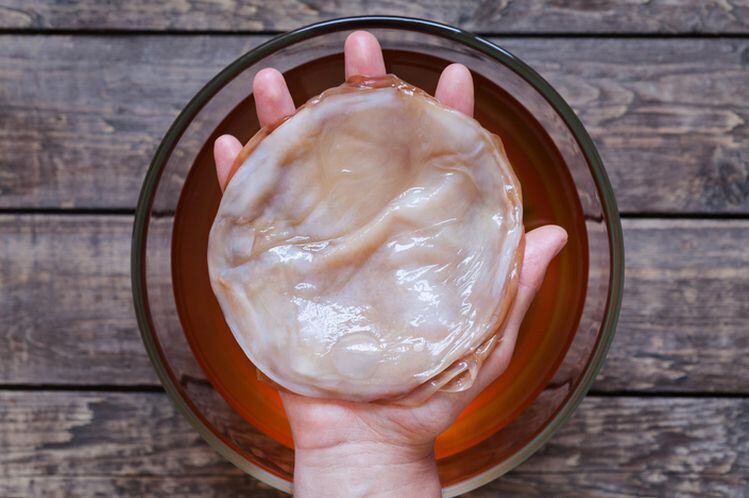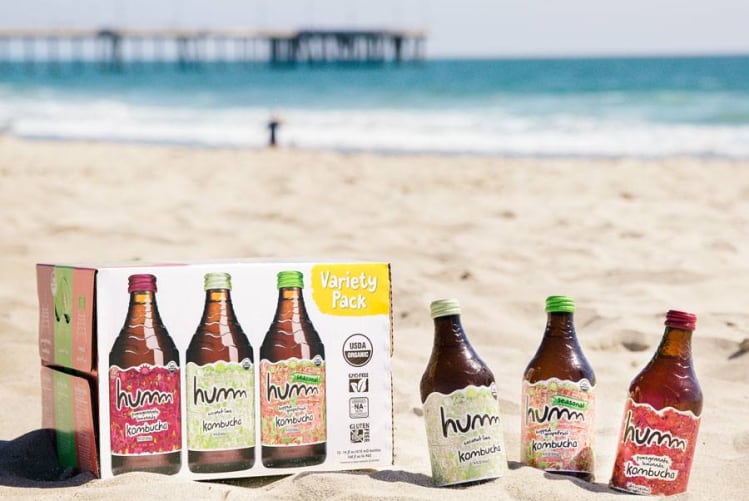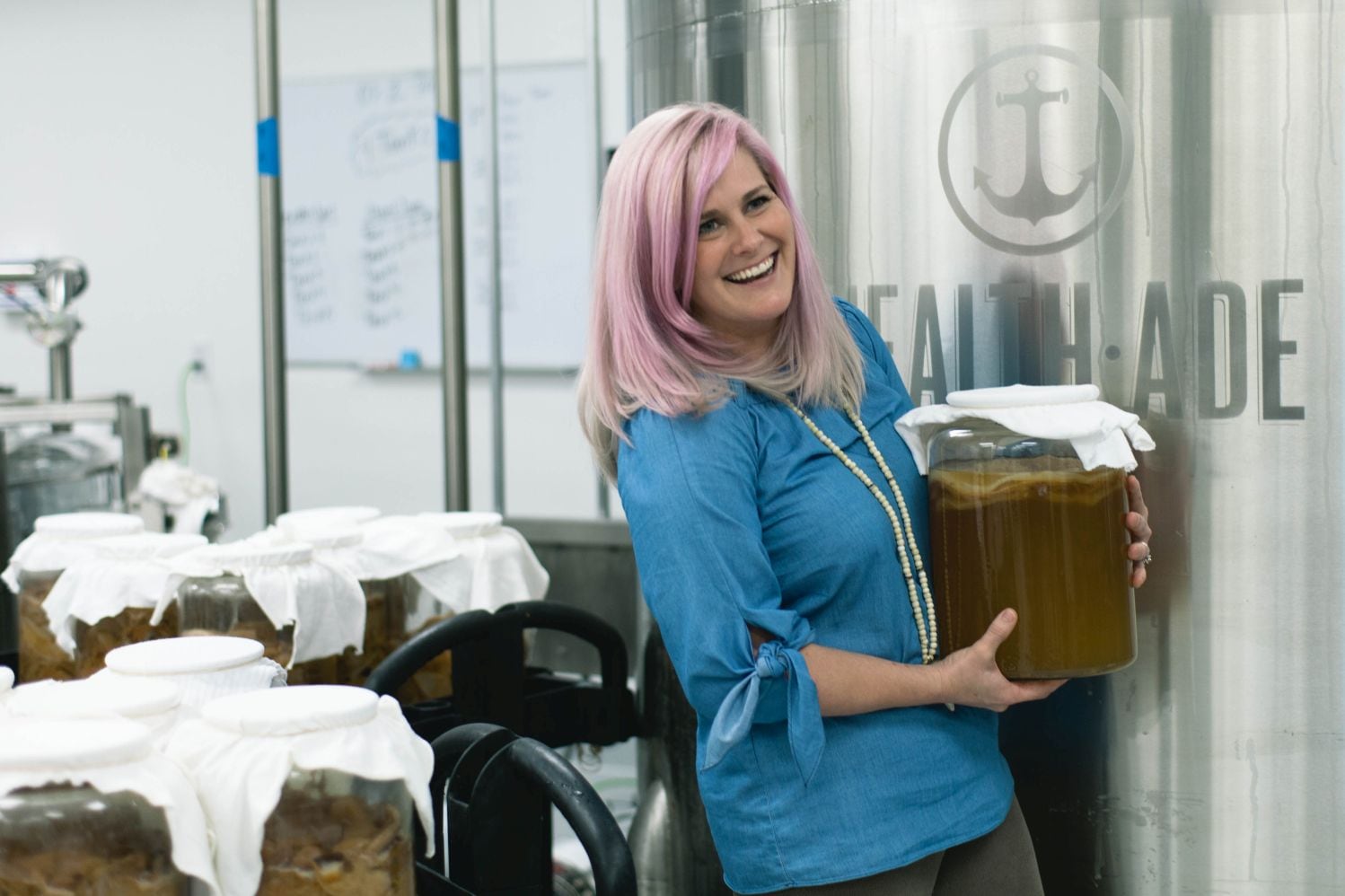In a lawsuit* filed last November, the plaintiffs argue that East West Tea falsely labels and advertises its Yogi Green Tea Kombucha teabags (which require steeping in boiling water) as kombucha, because the resulting beverage contains no ‘live organisms.’
According to the complaint, a “typical Kombucha beverage is prepared by brewing tea, adding sugar, bacteria, and yeast, and fermenting the mixture, which results in the production of live bacteria cultures.”
It added: “Since the purported health benefits associated with kombucha are attributed to its live organisms that naturally occur after fermentation, it is essential that the tea remains ‘raw,’ or avoids pasteurization in order to experience any of the probiotic benefits… Defendant’s representation that the Kombucha Products contain ‘Organic Kombucha’ is false, misleading, and deceptive because the Kombucha Products do not contain any kombucha, or alternatively, have been pasteurized, resulting in the destruction of any potential probiotic value once heated and prepared for consumption.”
In an August 2 order, Judge Janis Sammartino rejected East West Tea’s motion to dismiss the case, giving it the green light to proceed.
While there is no legal definition of kombucha and Yogi Green Tea Kombucha does not claim to contain live organisms, the plaintiff has “plausibly alleged that a reasonable consumer could read the word ‘kombucha’ to be a drink with live organisms or bacteria,” argued Sammartino.
Attorney: 'This issue of defining kombucha is one that I suspected would come full-circle sometime soon'
East West Tea has not responded to requests for comment, but attorneys contacted by FoodNavigator-USA said this case was one to watch, given the scrutiny firms in the space are already under over the issues of controlling sugar and alcohol levels.
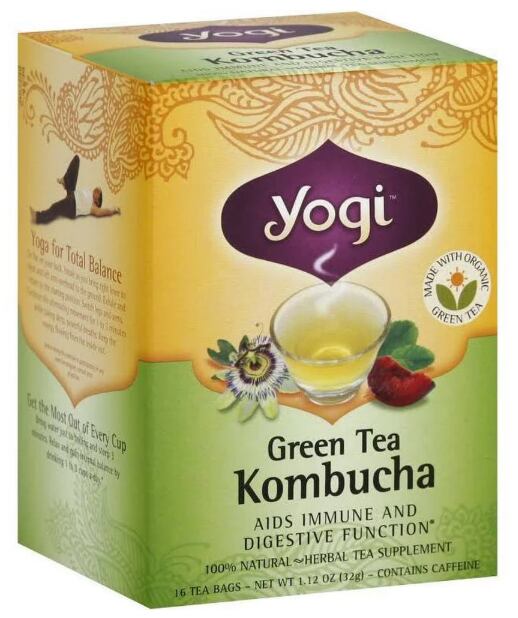
Ryan Kaiser, attorney at Ryan Kaiser IP, LLC, told FoodNavigator-USA: “Given my usual stance on these food and beverage class actions, you might be surprised to hear that I actually think this one might not be as far-fetched as most.”
He added: “This issue of defining kombucha is one that I suspected would come full-circle sometime soon. I've always suspected that consumers - and manufacturers - would conscientiously draw a line between kombucha and ‘raw kombucha,’ the latter obviously being unpasteurized.
“Obviously, consumers buy kombucha for different reasons. Some buy it for its live bacteria and organisms, but some buy it for the taste. For the latter group, there's nothing misleading about pasteurized kombucha or boiled kombucha tea. However, for those that buy it for the functional benefits, it's not hard to imagine a survey going plaintiff's way on this case. Especially where the product at issue is making structure function claims that appear consistent with the functional benefits of raw kombucha.
“Therefore I'm not at all surprised about the Motion to Dismiss being denied. I expect this case is going to get pretty far down the road if it doesn't settle.”
What is kombucha?
Kombucha is typically defined as a fermented tea, whereby firms brew tea, add sugar, and then ferment the mixture with a kombucha culture or 'SCOBY' (symbiotic culture of bacteria and yeast), which creates, among other things, carbon dioxide (explaining why kombucha is a bit fizzy), alcohol, acetic acid (explaining the slightly sour, vinegary taste) and other organic acids such as lactic acid, propionic acid, glucuronic acid and gluconic acid.
Individual brands may also add herbs, adaptogens such as reishi and ashwaganda, botanicals, fruit juice concentrates, and other ingredients, before or after the initial fermentation.
The devil, however, is in the detail, with some companies making a virtue of the fact that their kombucha is 'raw,’ and others heat pasteurizing their products to create a consistent product with an alcohol level below 0.5% abv and adding in well-characterized strains of probiotics afterwards, for example.
Some firms use micro-filtration techniques to filter out some yeast (to stop the product continuing to ferment in the bottle and increasing the alcohol content), while others (Brew Dr Kombucha, Aqua ViTea) distill off alcohol after the fermentation without the use of excessive heat.
Some brands such as Suja use a low heat, which they claim kills off residual yeast, but does not destroy beneficial bacteria remaining in the brew post fermentation.
Kombucha Brewers International (KBI) - the non-profit trade association behind the annual KombuchaKon conference - has been engaging with members to develop a working definition of kombucha, but has not yet nailed down a definition everyone is happy with.
Many members want kombucha defined as an unpasteurized, raw, microbiologically active tea fermented with a SCOBY, and think products that are heat pasteurized (with added probiotics added post fermentation), or those that use coffee or other non-tea products as a base, or tea powders and concentrates as opposed to brewed tea, or "who are not using a SCOBY at all," should not be considered 'kombucha,' or should be described as, for example, 'coffee-kombucha beverage,' 'kombucha drink' or 'kombucha beverage,’ KBI board member Zane Adams from Buchi Kombucha told FoodNavigator-USA in February.
However, no clear consensus was reached during a members' meeting at KombuchaKon.
‘There’s a perception in the trade about what an authentic kombucha is…’
KeVita Master Brew Kombucha (owned by PepsiCo) heat pasteurizes its kombucha but adds the well-documented probiotic strain Bacillus coagulans LactoSpore MTCC 5856 afterwards, enabling it to claim 'live probiotics' on the front of pack.
Speaking to FoodNavigator-USA at the Natural Products Expo West trade show earlier this year, Seth Kaufman, head of PepsiCo's North American Nutrition business, said: “There’s a perception in the trade about what an authentic kombucha is.
"Not everyone pasteurizes at the same point in the process, but based on our process, I am 100% confident that we have a legitimate kombucha product in the marketplace and I feel really good about KeVita’s products not only being true kombucha, but also having the healthy bacteria that we say we have, right up to the end of the shelf life.”
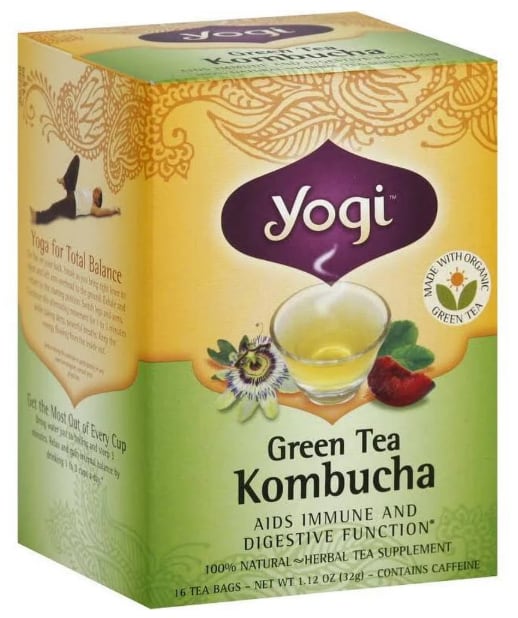
Q: I don’t understand about your kombucha tea. Does dried kombucha have the probiotics in it? And if it does won’t they be killed by the boiling water?
A: Great question! We’re happy to share more information about our Green Tea Kombucha. For the kombucha used in our tea, we start with an actual live kombucha culture to create a green tea kombucha infusion. This infusion is grown in a base of water and green tea leaves. The water from this mixture is then removed by a natural spray dry process.
Given that this process pasteurizes the infusion’s microbial culture, our Green Tea Kombucha does not contain living organisms as does traditional kombucha. However, the beneficial by-products of the kombucha culture remain, including numerous acids and vitamins.
Q&A, Jan/Feb 2017, East West Tea website
*The case is: Cohen v. East West Tea Co. LLC 1:17-cv-02339 filed in the southern district of California in November 2017.

